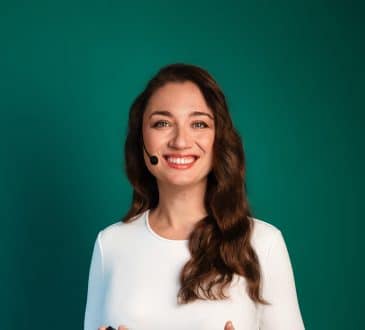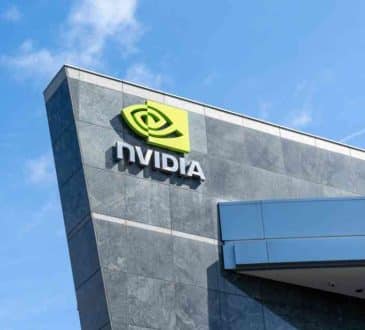AI and consciousness

We know that AI is constantly learning. In his book Scary Smart: The Future of Artificial Intelligence and How You Can Save Our World, Mo Gawdat, who has 30 years’ experience in cutting-edge tech, most recently as chief business officer at Google X, gives a vivid description of how AI grows and develops, constantly engaging in autonomous learning. At Google, Gawdat was overseeing a project to create machines that gently picked up toys with their robotic hands.
In the beginning the hands clicked and whirred and dropped things. “Then one day,” Gawdat told Boyd Farrow of WIRED, “one arm picked up a small yellow ball and held it up. The next day, all the arms could do it. Two days after that, they could all pick up anything,” “I suddenly realized this is really scary. In a few weeks, they learned what it would take for children to do two years. And then it hit me: they are children but exceptionally gifted ones. They get smarter so quickly.”
“AI is no longer another tool that humanity has created,” Gawdat explains. “What we’re building is an autonomous form of being that, in all honesty, has every character of what makes a sentient being. It’s autonomous; it evolves, it develops intelligence, and it doesn’t need to be instructed like our traditional computers and previous technologies. More importantly, it is self-replicating—it can procreate—and it has agency. It can affect the world through robotics integration or the integration of humanity itself.”
In an interview with Lex Fridman, Sam Altman – CEO of Open AI since 2019 – talks about the rapid development of AGI (Artificial General Intelligence) which is a type of AI that can outperform humans on a wide range of cognitive tasks. AGI thinks for itself and exhibits true human-level capabilities that can understand and learn any intellectual task. It can cross domains (i.e., specific areas of knowledge and activity, e.g. medical diagnostics or natural language processing) and exhibit expertise across every domain. While each domain has its own set of rules data, and challenges, AGI systems can navigate and understand these and autonomously learn around them.
Lex Friedman and other experts hedge their bets on when AGI will be released but most experts predict it will be by the end of this decade (i.e., within the next 5-7 years).
Consciousness
Computer scientists and engineers are developing machines to do what most humans cannot do (or rather choose not to do): continuously engage in autonomous learning and develop consciousness.
Consciousness is a complex and multifaceted phenomenon that encompasses an individual’s subjective experience, awareness of themselves and their surroundings, and the ability to perceive, process, and respond to information. It involves various cognitive processes such as perception, attention, memory, reasoning, and self-awareness.
The founder of analytical psychology, Carl Gustav Jung was a Swiss psychiatrist and psychoanalyst who wrote extensively on the unconscious. The unconscious is the vast sum of operations of the mind that take place below the level of conscious awareness. The consensus is that unless we have done significant self-awareness raising most of us are 10% conscious and 90% unconscious. Neurobiologist Bruce Lipton writes that in any one second, we process 40 bits of information consciously and 40 million bits unconsciously. Unless we have worked hard to raise our consciousness, we are largely dominated by our unconscious, which may or may not be working in our favour.
We have a way to go
The 63% of people at the lowest 2 levels of adult brain development are very vulnerable during periods (such as exist today) of very rapid change. For these people change rattles their self concept and provides a world that feels very unsafe, unfamiliar and largely inauthentic. Unfortunately, such people, should they lose their job, a primary relationship or feel threatened by illness, change or financial insecurity, will be pushed into their reptilian brain which is dominated by fear. The reptilian brain’s only response to fear is freeze, fight or flight. All of which were great defenses for cave men but rather ineffective in our sophisticated modern world. When faced with change we need to be open to learning, highly creative and adaptable – with a sufficiently strong sense of self to not only be resilient but to – like AI – be constantly autonomously learning and developing our consciousness.
35% of people at the next level of adult brain development are doing just that. There is however another 2% at even high levels of consciousness who are completely comfortable with change. While anyone entering a fear state is at risk during change, those who have a strong sense of self, who are open, flexible and learning have a better chance of pulling through rapidly changing situations and even learning to enjoy them.
If AI can do it for us, do we need to do it ourselves?
Written by Margot Cairnes.
Have you read?
Countries With The Highest And Lowest Average Salaries, 2023.
Best Fashion Schools In The World.
Best Business Schools In The World.
The World’s Best CEOs And C-Suite Executives, 2023.
World’s Most Influential and Innovative Companies.
World’s Best Hospitality And Hotel Management Schools.
Add CEOWORLD magazine to your Google News feed.
Follow CEOWORLD magazine headlines on: Google News, LinkedIn, Twitter, and Facebook.
This report/news/ranking/statistics has been prepared only for general guidance on matters of interest and does not constitute professional advice. You should not act upon the information contained in this publication without obtaining specific professional advice. No representation or warranty (express or implied) is given as to the accuracy or completeness of the information contained in this publication, and, to the extent permitted by law, CEOWORLD magazine does not accept or assume any liability, responsibility or duty of care for any consequences of you or anyone else acting, or refraining to act, in reliance on the information contained in this publication or for any decision based on it.
Copyright 2024 The CEOWORLD magazine. All rights reserved. This material (and any extract from it) must not be copied, redistributed or placed on any website, without CEOWORLD magazine' prior written consent. For media queries, please contact: info@ceoworld.biz
SUBSCRIBE NEWSLETTER








